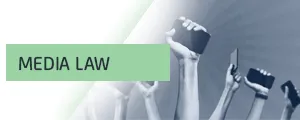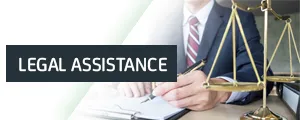Appeal of Coalition of NGOs "Zhiyrmasynshi Bap" (20th Article of Constitution of the Republic of Kazakhstan) to Members of Parliament of the Republic of Kazakhstan with regard to repressive tendencies of regulation of freedom of expression
4 february 2014
February 04, 2013
The Coalition of NGOs "Zhiyrmasynshi Bap" (20th Article of Constitution of the Republic of Kazakhstan) expresses deep concern in connection with increased number of restrictions of constitutional right to freedom of expression in a draft of Criminal Code of the Republic of Kazakhstan; these restrictions were supported by members of Parliament on January 29, 2014.
The mere assertion of draftsmen, that slander was fallen into category of crimes which has prophylactic effect; it overbalanced norms of the international documents (in particular, they were ratified by Kazakhstan), recommendations of Committee and Counsil for Human Rights of the United Nations, OSCE, OECD and Commission of Human Rights under the President of the Republic of Kazakhstan.
We think, that this statement is invalidate and dangerous. This principle was taken once. It can be dominating one and history shows that, it will lead to the rule of reaction and climate of fear. It is common knowkledge, that toughening of punishments does not lead to reduction of crimes. The crime prevention is realized with the help of disseminaltion of legal culture and ethical standards, but not reinforcement of repressions.
Contrary to statements of draftsmen, Kazakhstan's practice in the application of criminal liability for libel, it fails to European one. Countries of European Union do not launch criminal cases of defamation, but in 2013, there were five lawsuits, when journalists and members of the public were charged with slander, disseminated in media; the most last journalist who was sentenced to imprisonment, he was released in December. Dozens of threats of reference to the court in criminal order upon completition of public statements
In 2008, Special Rapporteur on Freedom of Expression of the United Nations stated: "Subjectivity of some laws on slander and their most widest coverage and application within the scope of criminal law they were transformed into powerful mechanisms of choke of the journalistic investigations and critisism".
The toughening of penalties for defamation actions during liberalization of liability for economical crimes will develop legal disharmony which will render impossible the state problem of anti-corruption struggle and in general, it will lead to suppression of the civil public life.
Dear Members of Majilis of Parliament of the Republic of Kazakhstan,
We call you, that you should be critical about proposals of draftsmen of a draft of Criminal Code with regard to freedom of expression and transfer judicial regulation of defamation disputes to the sphere of civil-law relations as may be required by logic of development of our legal secular state; according to it, the rights and freedoms of every human being are the supreme value.

The Coalition of NGOs "Zhiyrmasynshi Bap" (20th Article of Constitution of the Republic of Kazakhstan) expresses deep concern in connection with increased number of restrictions of constitutional right to freedom of expression in a draft of Criminal Code of the Republic of Kazakhstan; these restrictions were supported by members of Parliament on January 29, 2014.
The mere assertion of draftsmen, that slander was fallen into category of crimes which has prophylactic effect; it overbalanced norms of the international documents (in particular, they were ratified by Kazakhstan), recommendations of Committee and Counsil for Human Rights of the United Nations, OSCE, OECD and Commission of Human Rights under the President of the Republic of Kazakhstan.
We think, that this statement is invalidate and dangerous. This principle was taken once. It can be dominating one and history shows that, it will lead to the rule of reaction and climate of fear. It is common knowkledge, that toughening of punishments does not lead to reduction of crimes. The crime prevention is realized with the help of disseminaltion of legal culture and ethical standards, but not reinforcement of repressions.
Contrary to statements of draftsmen, Kazakhstan's practice in the application of criminal liability for libel, it fails to European one. Countries of European Union do not launch criminal cases of defamation, but in 2013, there were five lawsuits, when journalists and members of the public were charged with slander, disseminated in media; the most last journalist who was sentenced to imprisonment, he was released in December. Dozens of threats of reference to the court in criminal order upon completition of public statements
In 2008, Special Rapporteur on Freedom of Expression of the United Nations stated: "Subjectivity of some laws on slander and their most widest coverage and application within the scope of criminal law they were transformed into powerful mechanisms of choke of the journalistic investigations and critisism".
The toughening of penalties for defamation actions during liberalization of liability for economical crimes will develop legal disharmony which will render impossible the state problem of anti-corruption struggle and in general, it will lead to suppression of the civil public life.
Dear Members of Majilis of Parliament of the Republic of Kazakhstan,
We call you, that you should be critical about proposals of draftsmen of a draft of Criminal Code with regard to freedom of expression and transfer judicial regulation of defamation disputes to the sphere of civil-law relations as may be required by logic of development of our legal secular state; according to it, the rights and freedoms of every human being are the supreme value.






